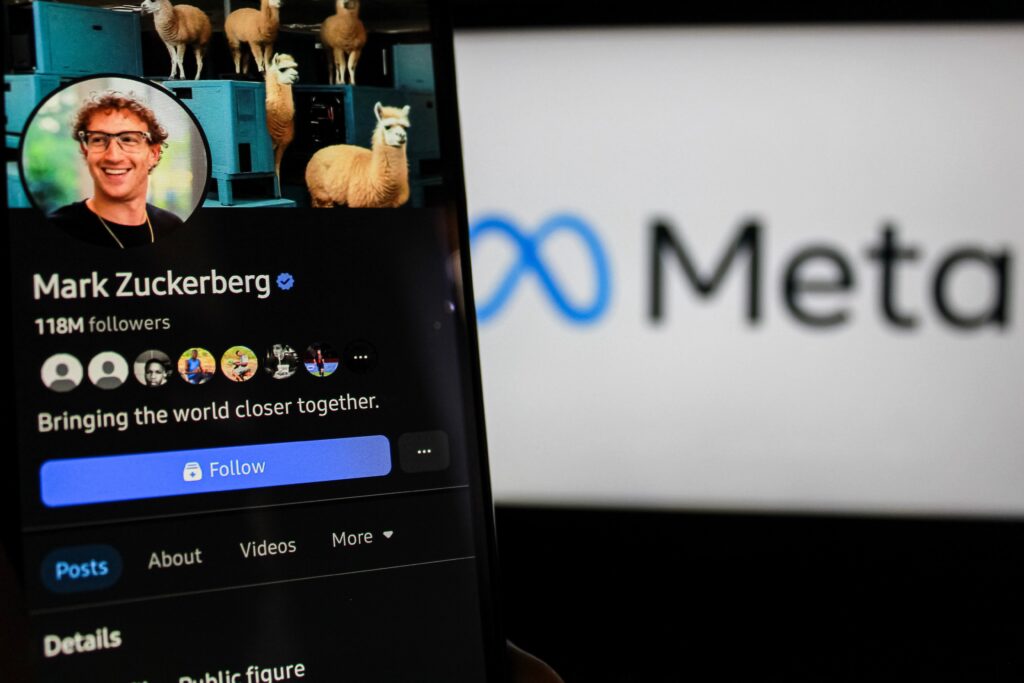The former US President sued Meta in 2021 after the suspension of his accounts.
Meta, the parent company of Facebook and Instagram, agreed to pay $25 million (£20m) to settle the lawsuit. Donald Trump initiated the legal action following the suspension of his accounts after the 6 January Capitol riots.
In July 2024, Meta fully restored Trump’s Facebook and Instagram accounts. The decision coincided with preparations for the US presidential elections.
The Wall Street Journal first reported details of the settlement. Approximately $22 million will go to a fund supporting Trump’s presidential library. The remaining funds will cover legal fees and compensate other plaintiffs involved in the lawsuit.
Meta did not admit to any wrongdoing. The company had suspended Trump’s accounts in 2021, originally imposing a two-year ban.
The Complex Relationship Between Trump and Zuckerberg
After Trump’s 2024 election win, Mark Zuckerberg visited Mar-a-Lago, Trump’s Florida resort. Many saw this visit as a sign of improved relations after years of tension. In December 2024, Meta donated $1 million to Trump’s inauguration fund. Zuckerberg attended the inauguration and sat near other prominent tech leaders.
However, Trump had long criticized Zuckerberg and Facebook, calling them “anti-Trump” in 2017. Their relationship worsened after the social media ban, with Trump labeling Facebook an “enemy of the people” in March 2024.
Twitter, now rebranded as X under Elon Musk’s ownership, also banned Trump’s account after the Capitol riots. Musk reinstated Trump’s account in 2022 after an online poll favored the move.
Meta’s AI Investments Amid Competition
Meanwhile, Meta defended its $65 billion investment in artificial intelligence (AI) amid rising competition from Chinese app DeepSeek. The AI app gained sudden popularity, shaking US tech stocks. However, Meta’s shares rose due to better-than-expected financial results.
Zuckerberg emphasized the importance of the company’s open-source AI strategy, contrasting it with rivals’ more proprietary models. He argued that adopting an open-source standard would benefit the US and ensure global technological leadership.
“We take this seriously. We aim to build the AI system the world uses,” he said. Meta released its open-source AI model to foster innovation and maintain US competitiveness.
Zuckerberg also addressed concerns about AI spending, saying the large investments aligned with Meta’s global scale. “We believe infrastructure investments will offer major advantages in service quality and scalability,” he added.
This year, Meta plans to spend up to $65 billion expanding AI infrastructure. Zuckerberg described the year as pivotal for its smart glasses project, predicting that smart glasses will replace traditional eyewear within a decade.
Additionally, Zuckerberg outlined plans to revive Facebook’s popularity amid stiff competition from platforms like Instagram and TikTok. He also defended Meta’s decision to end fact-checking, believing community-driven notes would prove more effective.
In the last quarter of 2024, Meta reported $48 billion in revenue, a 21% year-over-year increase. Despite heavy AI spending, the company posted $20 billion in quarterly profit, marking a 49% rise.


